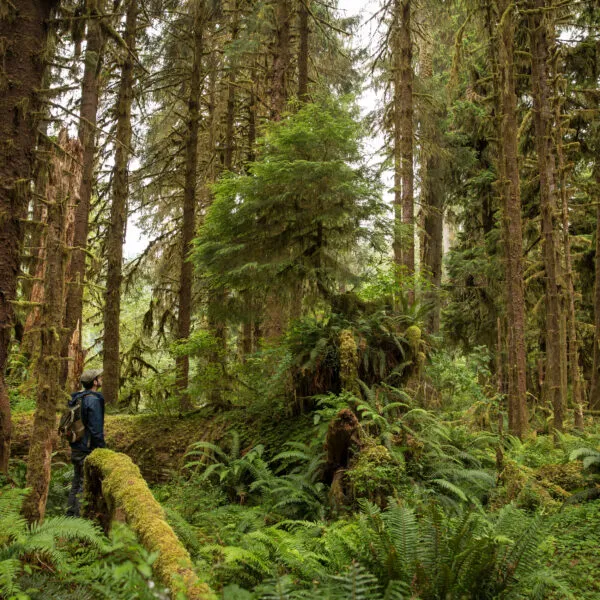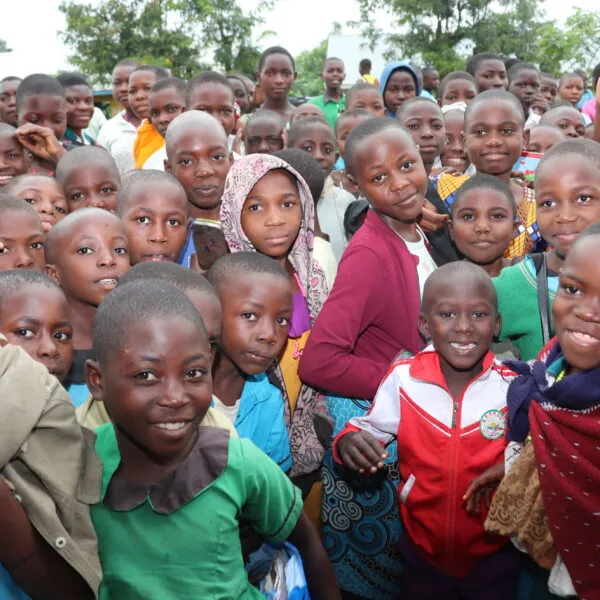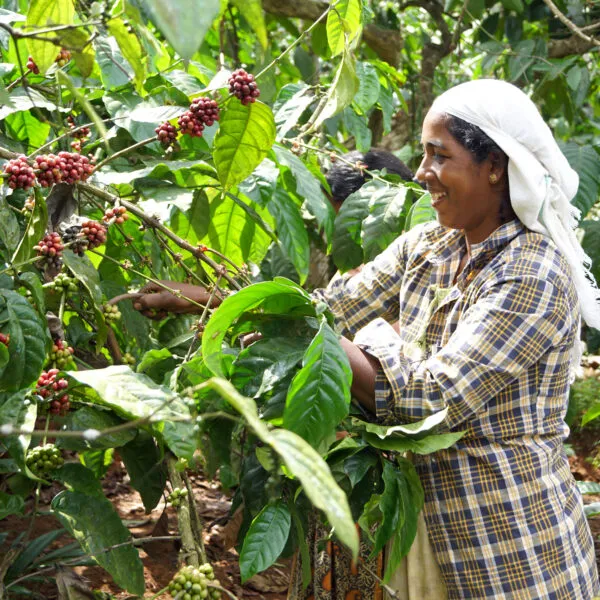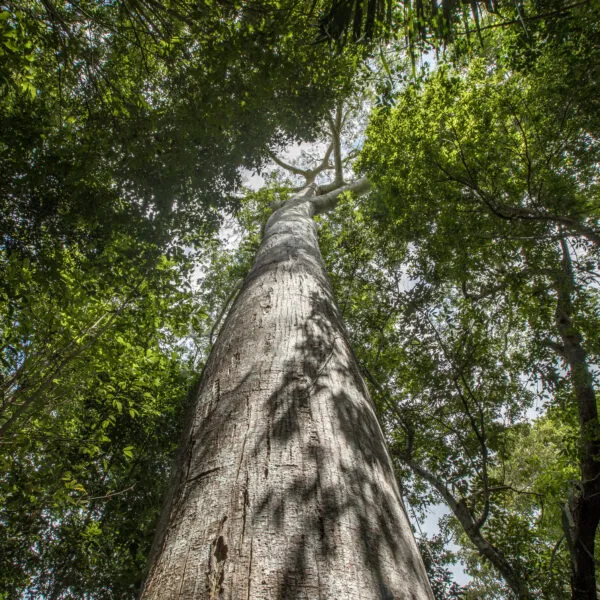The forests of Cameroon’s Western Highlands were once a flourishing biodiversity hotspot of global significance, home to thriving troops of rare gorillas and chimpanzees. Now, large parts of the country’s West and South regions have been deforested—threatening not only local wildlife, but also the livelihoods and cultural traditions of local communities. Here’s how sustainable community landscape management can address these urgent challenges.
More than 80 percent of the people living in the Western Highlands, and 70 percent of those in the South, depend on natural resources for their livelihoods. Sacred forests are also cherished locally, serving as special spaces for traditional rites and rituals. Historically, these sacred forests were protected through customary law, but high population growth and the absence of sustainable land management mechanisms has put these forests and other precious ecosystems under severe human pressure. Deforestation is accelerating at an alarming rate—driven largely by agricultural expansion linked to the commercial production of cocoa, rubber, and palm oil.
At the Rainforest Alliance we believe that sustainable, community-led landscape management is the best long-term solution to these urgent environmental and social challenges. This project aims to bring together all local stakeholders, especially frontline forest communities, to develop workable strategies to preserve Cameroon’s rich and unique biodiversity—and all while building thriving rural economies rooted in more sustainable growing practices and forest stewardship.
Location
Cameroon
- Western Highlands: Mount Bamboutos, Mount Bana, and various sacred forests across the region
- South Region: southern periphery of the Dja Reserve
Period
2020-2025
Partner communities
This initiative will help rural communities in three critical forest landscapes—Mount Bamboutos and Mount Bana in the Western Highlands and the southern periphery of the South Region’s Dia Reserve. The project activities are expected to serve around 1,800 men and 1,200 women living in these areas.
The project will also help boost the operational capacity of 10 local civil society organizations and community-based organizations through technical support and skills development.
Project objectives: Putting community at the heart of conservation
The primary objective of this project is to remove barriers to biodiversity conservation, land restoration, and sustainable forest management through community-based landscape management.
In order to achieve this, there are several barriers to overcome, such as the absence of legal environmental protections and limited governmental capacity to monitor forest encroachment, resource extraction, and biodiversity loss. Similarly, the absence of integrated planning structures among government ministries and key stakeholders makes it highly challenging to promote sustainable development models and tackle land conflict at a national level. Meanwhile, at a local level, Civil Society Organizations and Community Based Organizations (including farming and forestry groups) struggle with significant capacity challenges.
Another major obstacle to overcome is the knowledge gap among local land users related to sustainable land management best practices. This is especially challenging since the limited market demand for sustainably produced products currently undermines the economic incentive for land users to change their current practices.
Desired impacts: Thriving communities for healthy landscapes
The over-arching goal by the end of the project is to develop and implement robust environmental policy structures alongside practical, field-based strategies to strengthen biodiversity conservation, while boosting the long-term economic resilience of Cameroon’s rural communities.
To that end, the project will work to achieve the following outcomes:
- Legal protection status for Key Biodiversity Areas (KBA)
Some 7,600 ha of biodiversity-rich land, including areas of High Conservation Value Forest (HCVF) will be protected across the Western Highlands and South Region.Project partners will work closely with the Cameroon government to create priority management zones (PMZ) for sustainable development within the framework of national law n°2011/008 which lays down guidelines for territorial planning and sustainable development in Cameroon.
This will be supported by the creation of a new multi-stakeholder governance structure for landscape management comprised of local authorities, producers, civil society organizations, and private sector actors.
- Community-based landscape management of surrounding forests and agricultural lands
Local forest and farming communities will lead the development of sustainable landscape management plans to reduce pressure on natural resources across the wider region—covering a target area of 53,000 ha.
This inclusive approach will not only build community consensus on urgent conservation priorities but will also provide economic incentives for sustainable land and forest management.
The project also will promote more sustainable agricultural practices—including mulching, tree planting, and integrated pest and disease management—that will help local farmers boost yields on existing farmland, improve soil fertility, protect local watersheds, and lower health risks associated with agrochemical use.
- Sustainable local enterprises for thriving communities and healthy forests
The project will support the development of small-and-medium sized local enterprises (SMEs) that use natural resources—including timber and non-timber forest products—more sustainably, while generating thriving livelihoods for local communities.
- Women as community leaders in sustainability
Women are a large yet vulnerable group of natural resource users—performing the vast majority of unpaid work, while being denied access to education, skills training, and financial support. Yet studies show that when rural women gain more economic strength, the wider community benefits.
The promotion of gender equality will be a key criterion in selecting local initiatives and organizations to receive support from the project’s small grants mechanism.
A sister project, Advancing women’s rights through community-led landscape management in Mount Bamboutos will also tackle this important issue head-on.
Funders
This project—official name “Removing barriers to biodiversity conservation, land restoration, and sustainable forest management through community-based landscape management”—is funded by:
Global Environment Facility (GEF) through United Nations Environment Program (UNEP)
Ministry of Environment, Nature Protection and Sustainable Development of Cameroon (MINEPDED)
The Rainforest Alliance
Ministry of Economy, Planning and Regional Development (MINEPAT)
National Community Driven Development Program (PNDP)
Livestock Development project (PRODEL)
Rainforest Alliance contact
Nadège Nzoyem, Central Africa director
nnzoyem@ra.org




